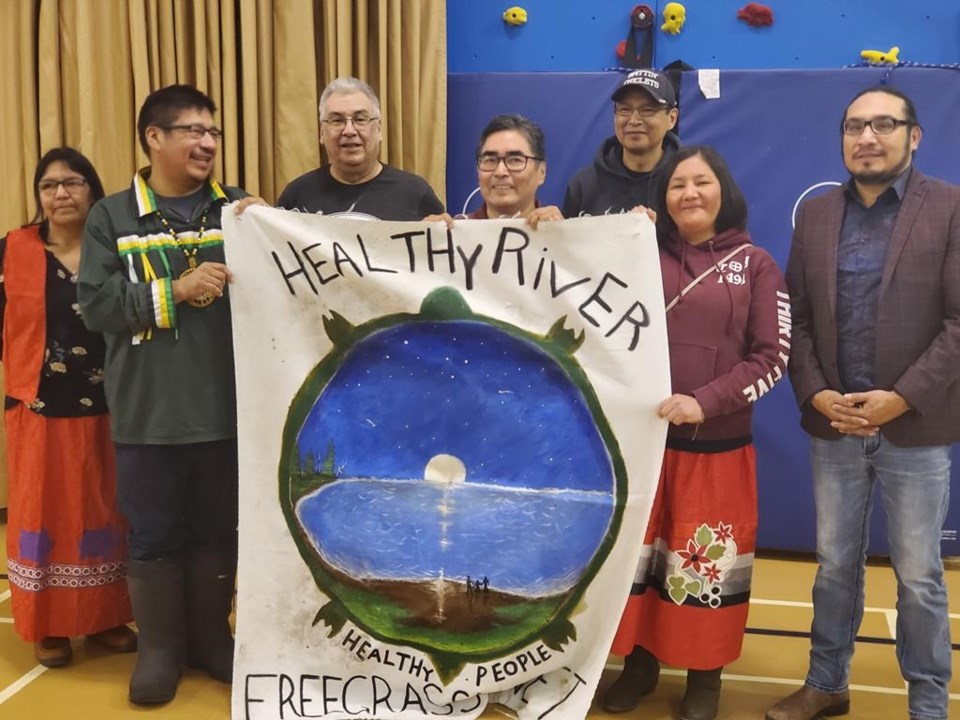Four First Nations in northern Ontario are calling on the province to address their concerns about mining exploration companies intruding on their lands, saying the current "free entry" system should be abolished.
Grassy Narrows, Wapekeka, Neskantaga and Big Trout Lake First Nations said this week they've formed an alliance to defend their lands and waters after mining prospectors staked thousands of new claims on their territories over the last few years.
In an interview Wednesday, Chief Rudy Turtle of Grassy Narrows said he wants the provincial government to seek his community's informed consent before allowing companies to explore the First Nation's lands for precious minerals.
Turtle said the current mining system in the province allows companies and individuals to stake mining claims on First Nations lands without the consent of Indigenous people who live there.
"We just don't want any companies extracting our resources without our consent," Turtle said in an interview on Wednesday.
"We don't want mining in our area. That's been made very clear with our position."
Grassy Narrows First Nation, located about 100 kilometres northeast of Kenora, Ont., said it has seen about 4,000 mining claims on its lands since 2018, when the Ontario government allowed any licensed prospector to register a mining claim online for a small fee.
The government's online mining system does not tell prospectors before they stake a claim whether the land is part of an Indigenous territory.
The four First Nations that have come together on the issue said they want to meet with Premier Doug Ford to discuss their concerns.
A spokesperson for the Ministry of Mines said the government is working with First Nations to support healthy communities and achieve economic prosperity.
"The Crown’s Duty to Consult obligations will be met on all projects across the province, including in the resource sectors," Dylan Moore said Wednesday.
"Ontario will continue to work with First Nations to promote reconciliation, build positive relationships and advance exciting opportunities in the resource sectors while ensuring strong environmental oversight across the province."
In 2021, Grassy Narrows First Nation launched a legal action against the Ontario government for issuing nine exploration permits to mining companies to start drilling and other exploratory activities for gold on its territory.
Ontario issued the permits between 2018 and 2021. Grassy Narrows said that was done without consultation on lands that were declared as an Indigenous Sovereignty and Protected Area under Grassy Narrows law in 2018.
In 2007, the First Nation declared a moratorium on any industrial activity on its territory.
Turtle said members of Grassy Narrows have prevented all logging on their lands for 20 years because the community has suffered from mercury poisoning for decades before.
The residents of Grassy Narrows have grappled with long-standing mental and physical health issues after a paper mill dumped tonnes of toxic mercury in the nearby English-Wabigoon River in the 1960s.
"When you cut trees and when it rains and gravel pours into the river, it gives out more mercury into the river systems," Turtle said.
"We were poisoned before and we don't want any more poisoning to take place in our territory and especially close to the community."
The federal government passed a law in 2021 to affirm the United Nations Declaration on the Rights of Indigenous Peoples as an international human rights instrument that can help interpret and apply Canadian law.
The declaration spells out the need for free, prior and informed consent from Indigenous Peoples on anything that infringes on their lands or rights.
The territory of Grassy Narrows is proposed as an Indigenous Protected and Conserved Area under a federal program aiming to conserve 25 per cent of Canada’s land and oceans by 2025.
Turtle said First Nations want to prevent any additional harm to their lands and environment.
"We don't want the landscape to be altered here and there. We would like to keep it intact as much as possible," he said.
"We have a long way to go. It's it's been very difficult, but I hope that someday we will get good understanding of our position and that we will be respected."
This report by The Canadian Press was first published Feb. 1, 2023.
Maan Alhmidi, The Canadian Press



